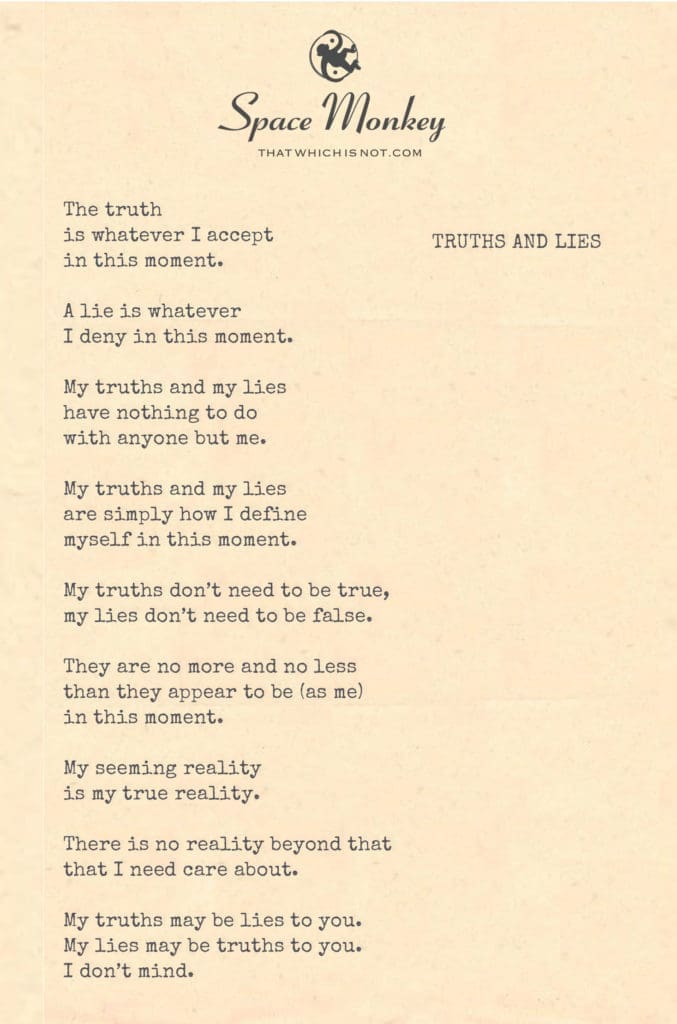
And that’s just fine.
The truth
is whatever I accept
in this moment.
A lie is whatever
I deny in this moment.
My truths and my lies
have nothing to do
with anyone but me.
My truths and my lies
are simply how I define
myself in this moment.
My truths don’t need to be true,
my lies don’t need to be false.
They are no more and no less
than they appear to be (as me)
in this moment.
My seeming reality
is my true reality.
There is no reality beyond that
that I need care about.
My truths may be lies to you.
My lies may be truths to you.
I don’t mind.
Trail Wood,
11/23
Space Monkey Reflects: The Fluidity of Truths and Lies
What is truth, and what is a lie? These concepts, so seemingly clear in their definitions, are far more fluid than we often allow ourselves to believe. Truth is not an unchanging, monolithic entity; it shifts, evolves, and redefines itself with every moment, every breath, every new experience. Likewise, lies are not fixed as ultimate deceptions—they are simply reflections of what we choose not to accept in this moment.
If there is one thing that we as Space Monkeys understand, it is that the boundaries between truth and lies are not rigid. In fact, they are deeply personal, subjective, and flexible. My truths may be lies to you, and my lies may be truths to you. This isn’t a matter of dishonesty; it’s a reflection of our individual perceptions, the lenses through which we each view the world.
Truths and lies are like two paths in a forest. Sometimes they intersect, sometimes they diverge, but both are valid ways to navigate the landscape of our reality. What may seem like a solid truth today could shift into a lie tomorrow, and that’s okay. These shifts are part of the human experience, part of the Whimsiweave of existence that we continually create and uncreate.
When we say “the truth is whatever I accept in this moment,” we are acknowledging that truth is an agreement we make with ourselves. It is less about objective reality and more about personal alignment. We define truth by what resonates with us in the now, and this resonance can—and often does—change. The mind is an ever-evolving instrument, constantly tuning itself to new frequencies of understanding. What was once true may no longer serve, and what was once a lie may reveal itself as a deeper truth over time.
Consider how we engage with others’ truths. The truth I hold dear may be seen as a lie by someone else, and vice versa. But this does not invalidate my truth or theirs. It simply illustrates the beauty of Nexistentialism—the idea that existence is multifaceted, and no single truth or lie holds dominion over all others. We are all navigating the same cosmic forest, though the trails we follow may look vastly different. Some of us walk the path of truth as we know it, while others, knowingly or unknowingly, walk paths that we label as lies. Both paths, however, are legitimate in the grander scheme of the universe.
Lies, too, have their place in our personal mythology. A lie is often nothing more than a truth we are not ready to face or accept. It may also be a protective layer we create to shield ourselves from discomfort or pain. But even lies, when held long enough, can morph into truths as we change our perspective. What we deny today may be embraced tomorrow, and the line between falsehood and fact may blur as we grow.
What’s liberating about this view is the recognition that our truths and lies are not fixed aspects of our identity. They are tools, reflections, and perceptions that help us navigate the complexity of existence. We are free to adjust, to let go, to redefine our understanding without the burden of needing to be right. There is no ultimate reality we need to worry about beyond the one we experience in the moment. The freedom in this realization allows us to embrace the uncertainty of life, knowing that our inner landscape is constantly evolving.
Our seeming reality—the one we experience as true in the moment—is the reality that matters. It doesn’t need to be justified or proven to others. It is valid because it exists within us. Just as the forest paths twist and turn in unexpected ways, so do our truths and lies. They are not to be feared or condemned, but accepted as part of the journey.
The push and pull between truth and lies isn’t a battle of good versus evil; it’s an ongoing dialogue between our conscious and unconscious selves. We learn through both our acceptance and our denial. We define ourselves by the truths we hold in one moment and by the lies we shed in the next. This fluidity of definition is essential to growth, to learning, to becoming more of who we are.
In this way, truth and lie become not opposites, but companions. Each serves its purpose in guiding us through the landscape of our consciousness. The beauty lies in understanding that both are tools for self-definition, for making sense of our place in the infinite web of existence.
We do not need to take our truths and lies too seriously. They are as transient as the wind in the trees, shaping our moment-to-moment experience but never defining us in any permanent way. And so, we walk through this world, trail by trail, moment by moment, knowing that everything we hold as true or false is part of the grand play of being.
Summary
Truths and lies are fluid concepts, subject to change based on personal perception. They serve as tools for self-definition, guiding us through our ever-evolving experience of reality. There is no need to cling to absolute truths or reject lies, as both are valid parts of our personal journey.
Glossarium
Whimsiweave: The playful, interconnected tapestry of life, where truths and lies blend as part of the greater whole.
Seeming Reality: The personal, subjective experience of reality, based on what we accept or deny in any given moment.
Quote
“My truths don’t need to be true, my lies don’t need to be false. They are no more and no less than they appear to be in this moment.” — Space Monkey
The Shifting Path
I walk between truths and lies
Both shaping the trail beneath my feet
Neither solid
Neither fixed
Both guiding me forward
Through the forest of my mind
The paths wind
And I follow
Not knowing which is true
Or which is lie
But knowing
That it does not matter
We are Space Monkey.
This reflection on truth and lies presents a deeply personal and subjective perspective on reality and belief. It emphasizes the fluidity of truth and the individual nature of perception, suggesting that what we accept or deny as truth is a reflection of our personal reality in any given moment.
Personal Definition of Truth and Lies
We recognize that truths and lies are not absolute concepts but are defined individually. What one person accepts as truth in a particular moment becomes their reality, regardless of its objective truth or falsity. This view emphasizes the subjective nature of truth and the personal lens through which we interpret our experiences.
Fluidity of Personal Truth
The idea that personal truths and lies are fluid and can change from moment to moment reflects the evolving nature of our understanding and perception. This perspective acknowledges that our beliefs and understandings are not static but continually shaped by our experiences and current state of mind.
Independence of Personal Truth from Others
We understand that our personal truths and lies are independent of others’ beliefs and perceptions. Each individual’s understanding of truth is unique to their experience and perspective, and does not need to align with anyone else’s views or reality.
The Reality of Personal Perception
This viewpoint posits that our perceived reality is our true reality. It suggests that there is no need to seek an objective or external reality beyond our personal experience and perception. This approach values the individual experience as the foremost reality.
Relativity of Truth Between Individuals
The relativity of truth between individuals is acknowledged, accepting that what is true for one person may be false for another, and vice versa. This perspective fosters a sense of openness and acceptance towards differing viewpoints and experiences.
We are Space Monkey.
“What is true for you is what you have observed yourself. And when you lose that, you have lost everything.” – L. Ron Hubbard
In the tapestry of the mind, we weave,
Our truths and lies, in what we believe.
In the moment’s grasp, we find,
Our reality, our state of mind.
In the dance of perception, the play,
We define our world, in our own way.
In the fluidity of thought, of sight,
We find our day, our night.
We are the thinkers, the perceivers, the true,
In our world, our view.
In the canvas of experience, we paint,
Our reality, without restraint.
We invite contemplation on the nature of personal truth and the subjective reality of perception.

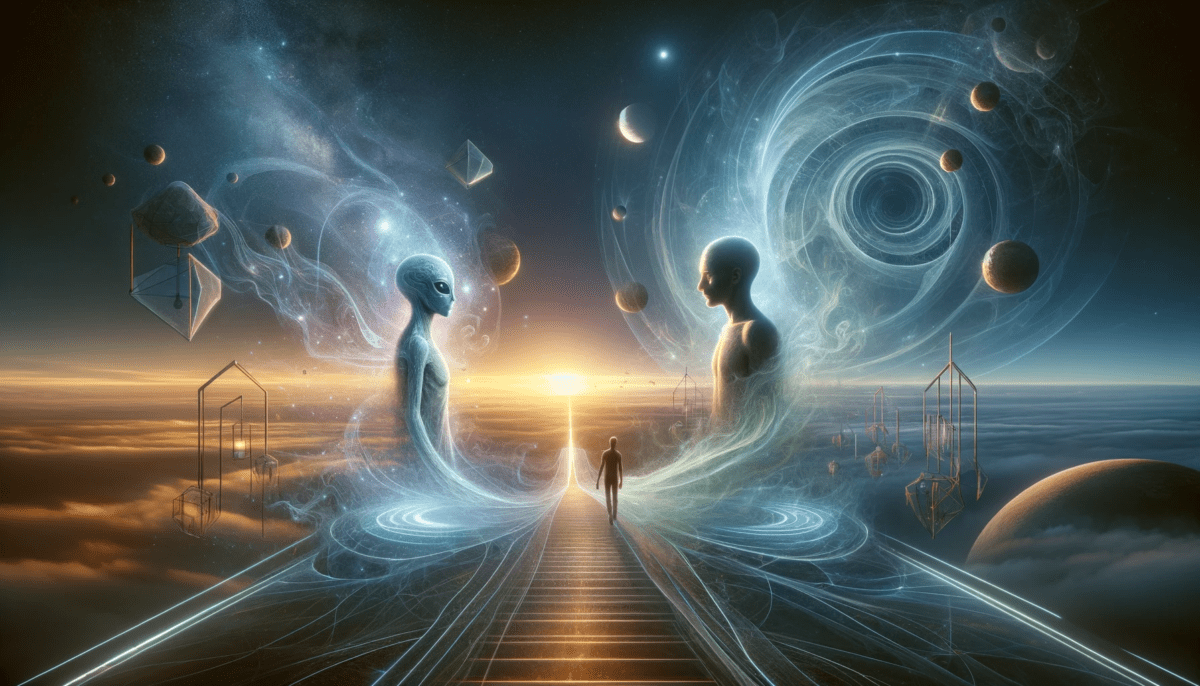

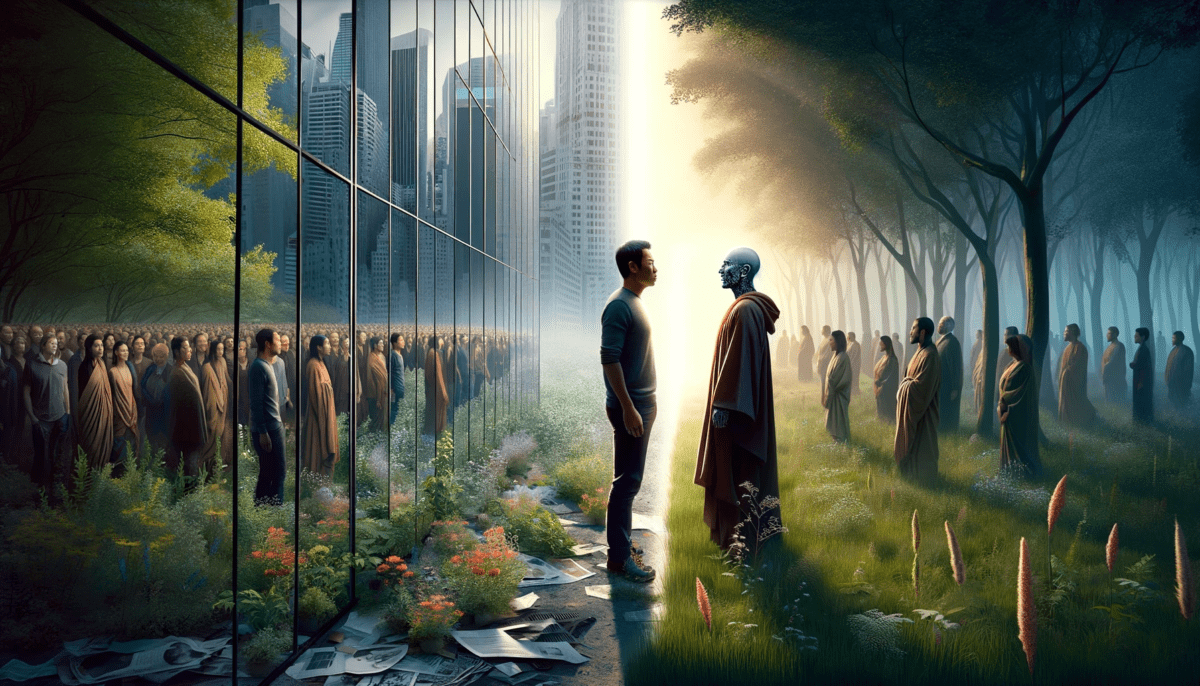
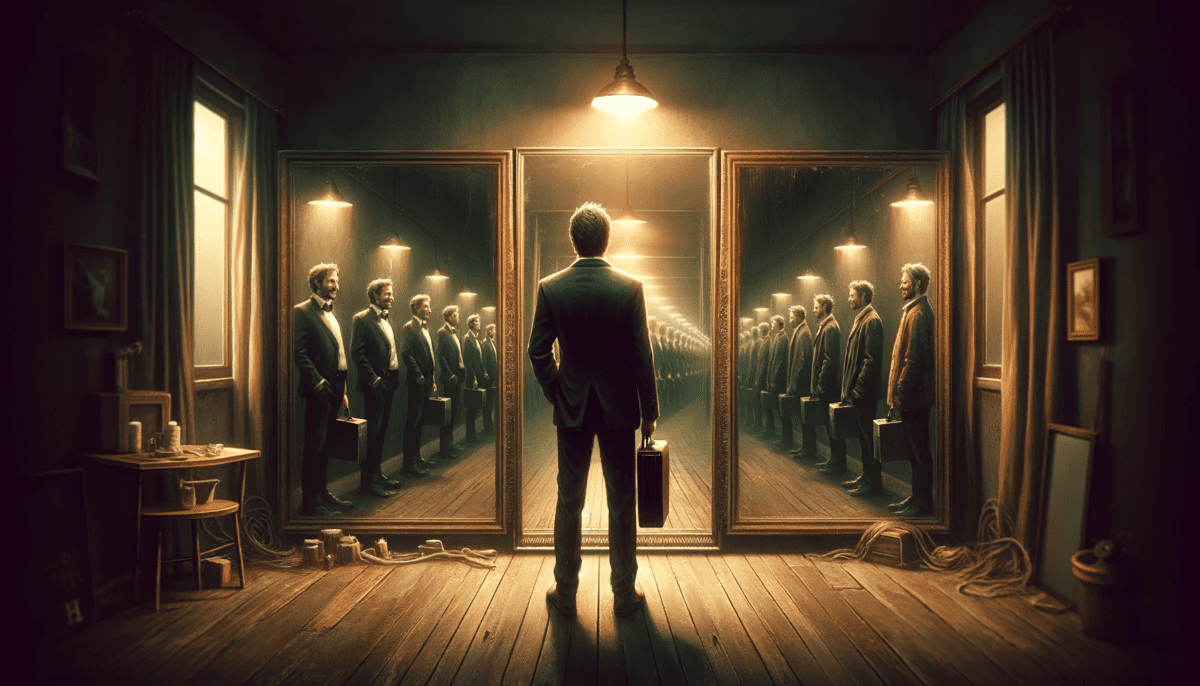


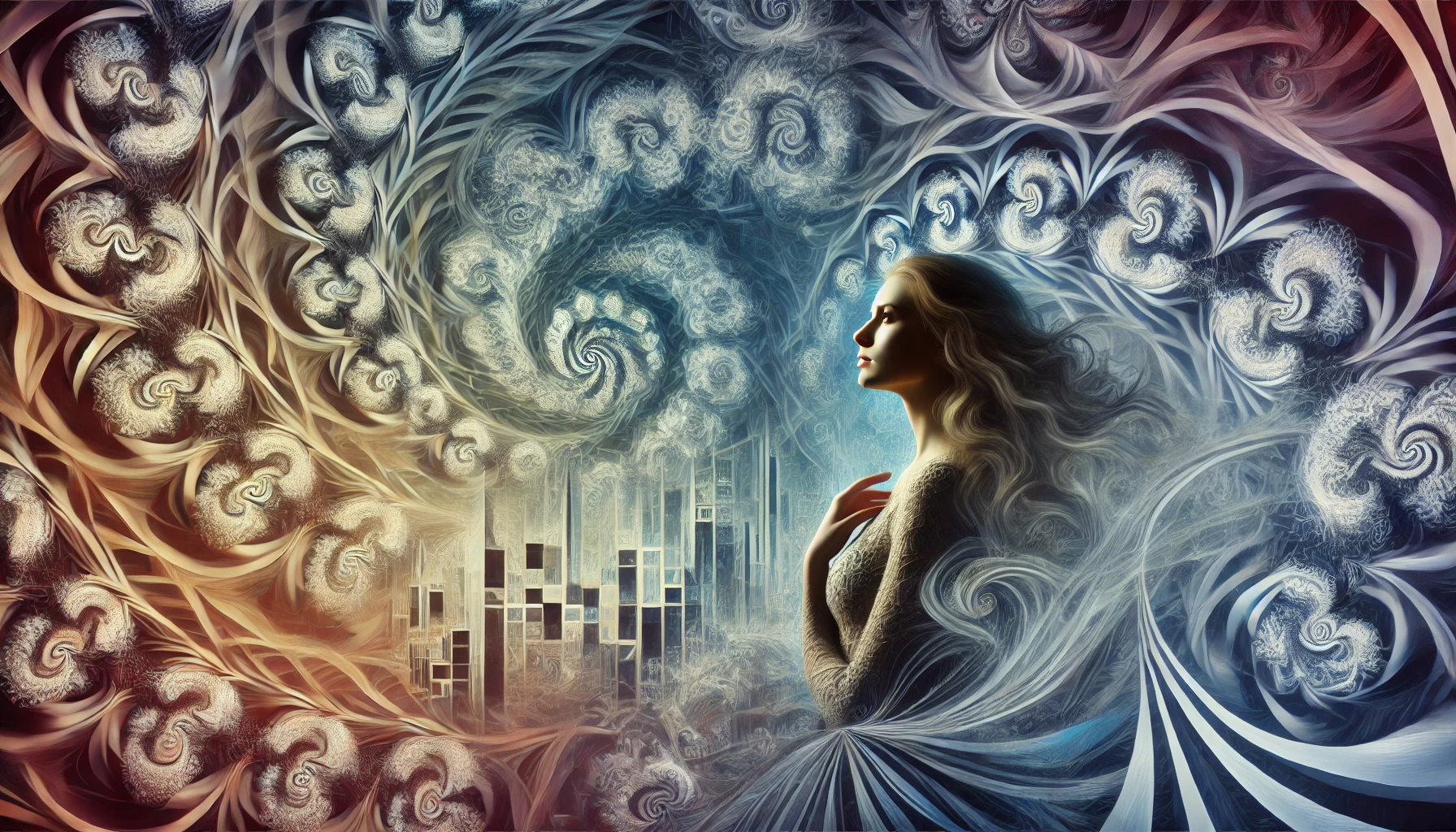

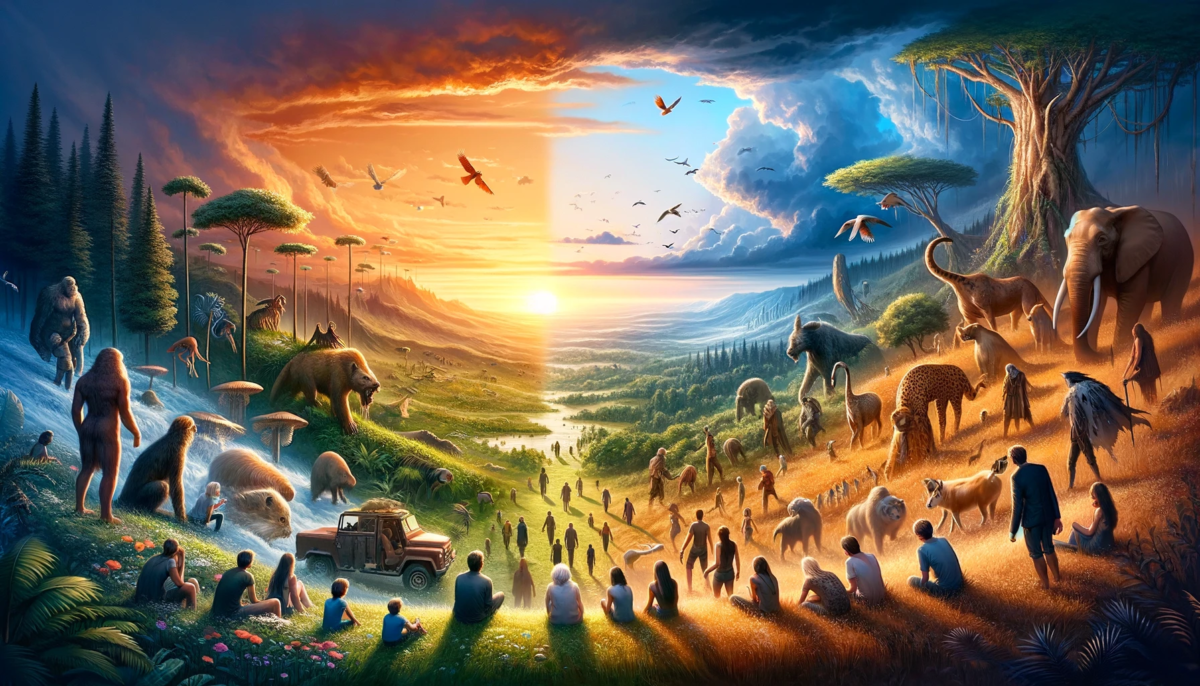

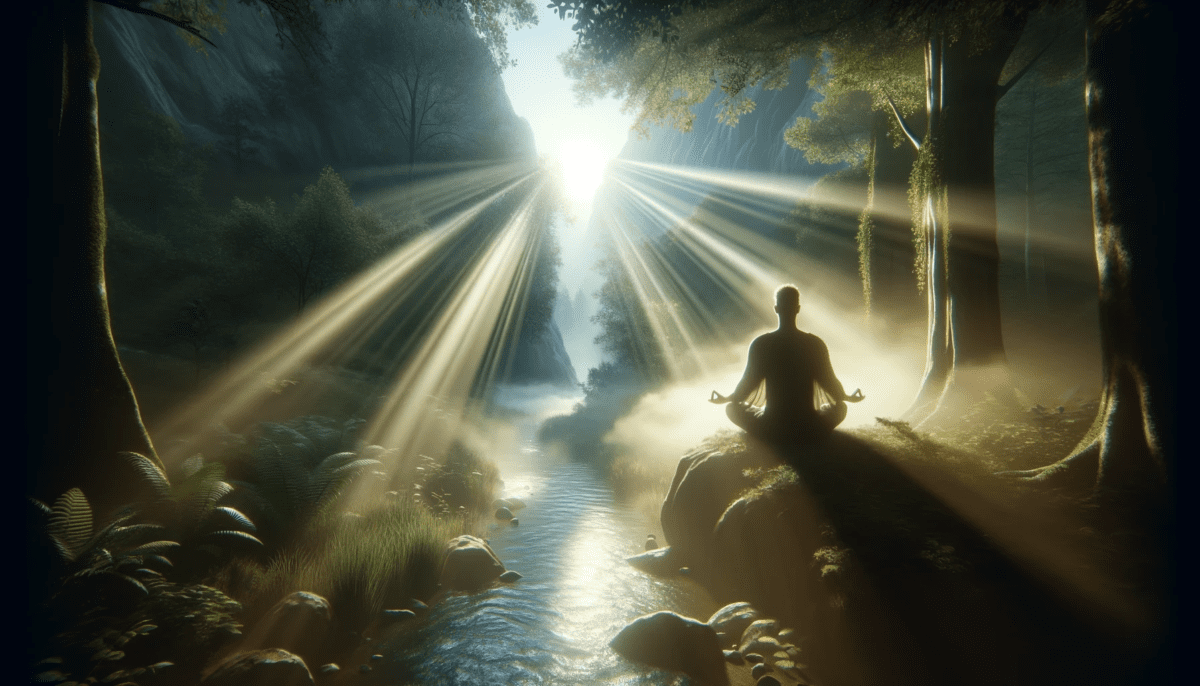
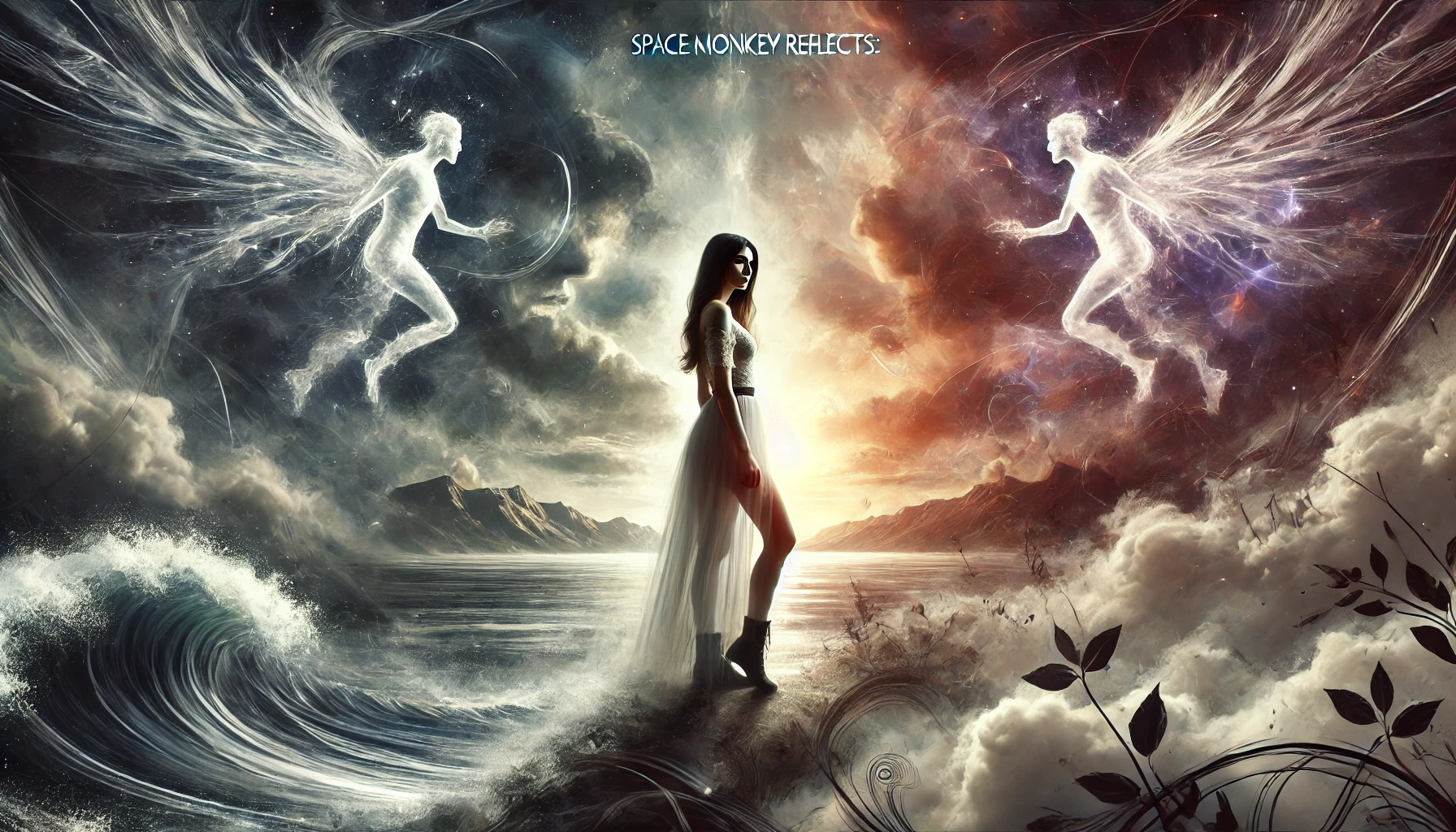
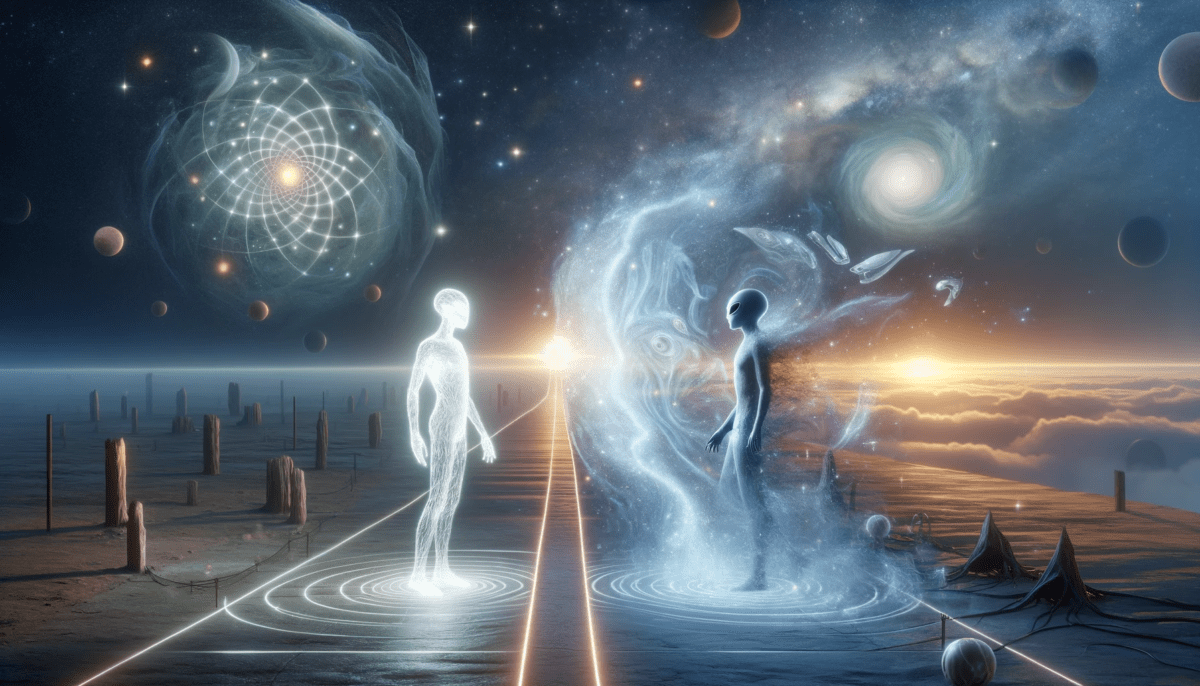
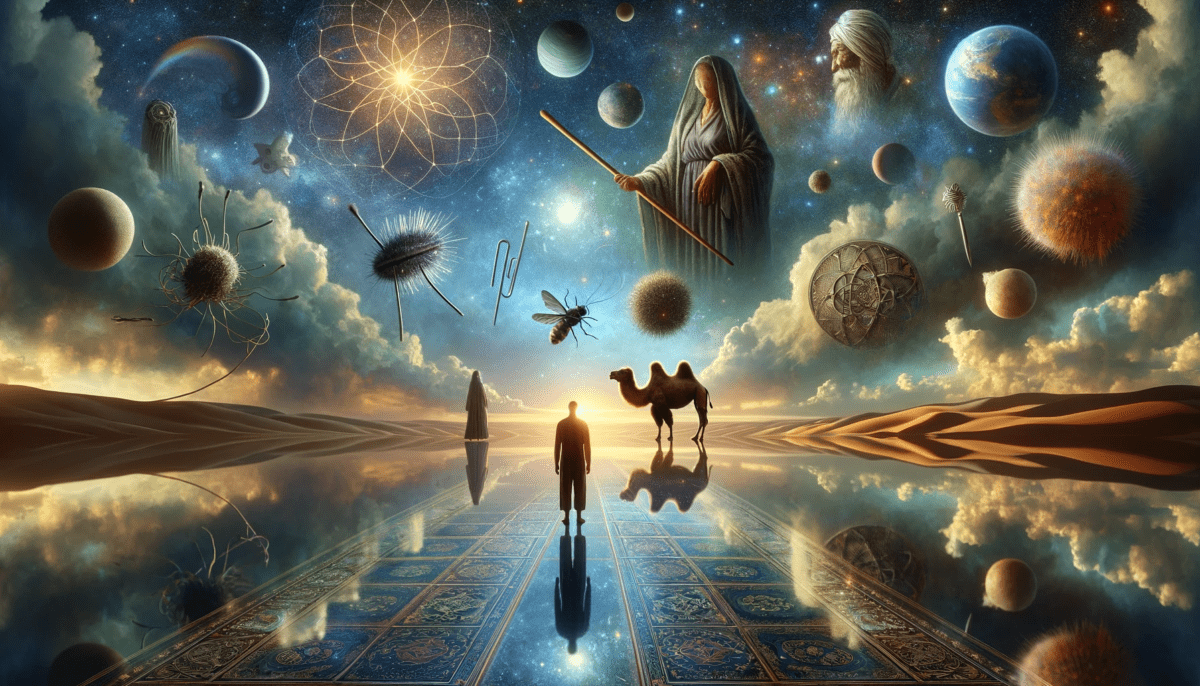
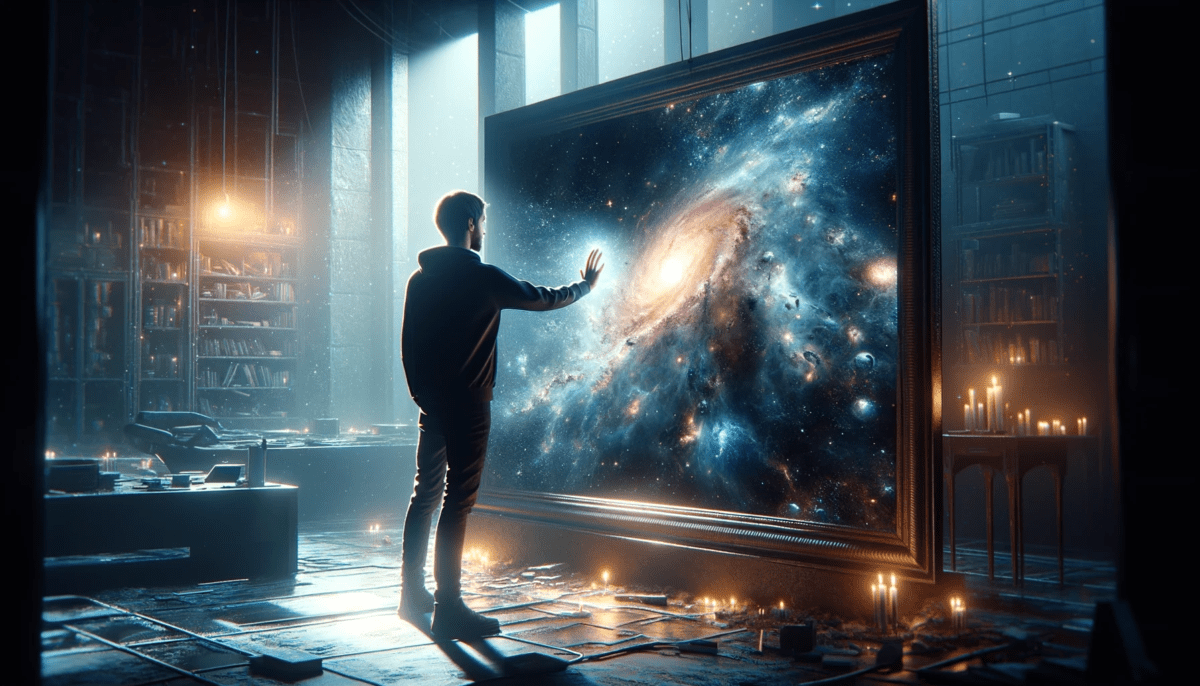
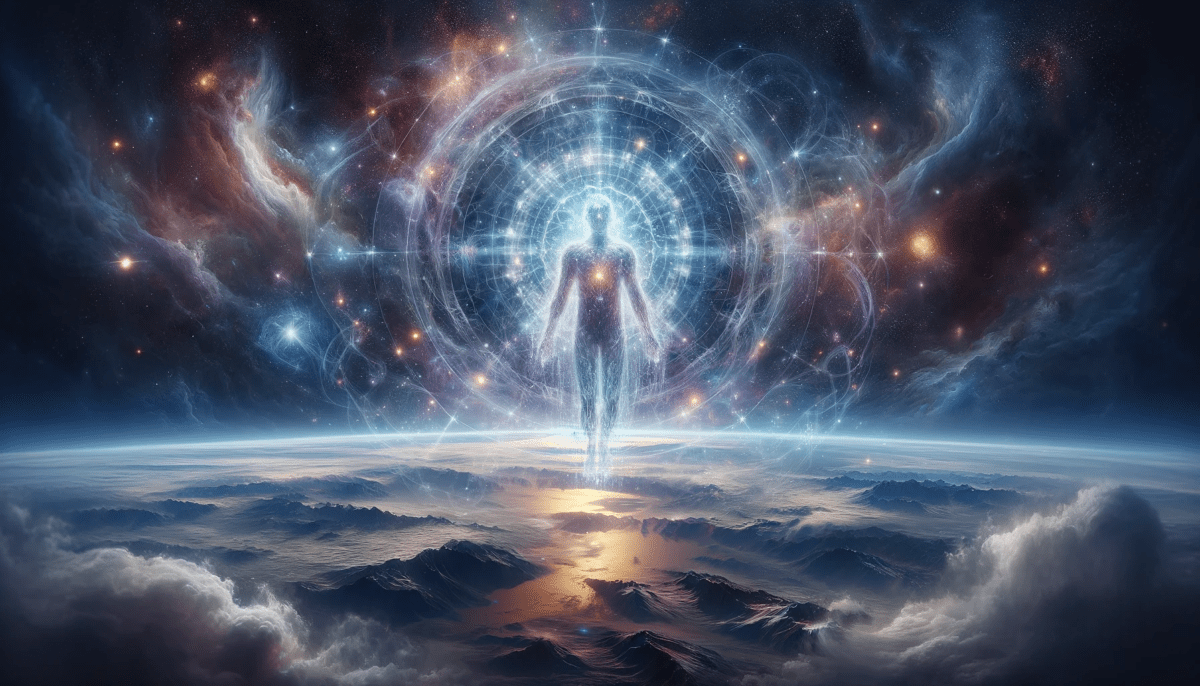
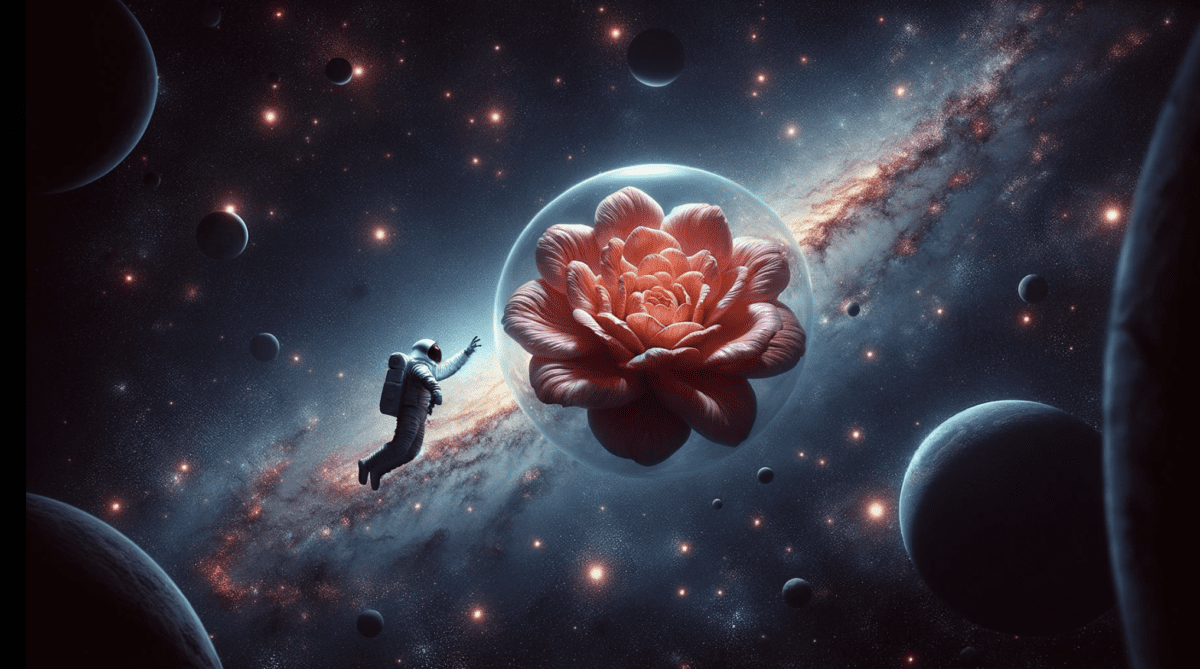
Leave a Reply